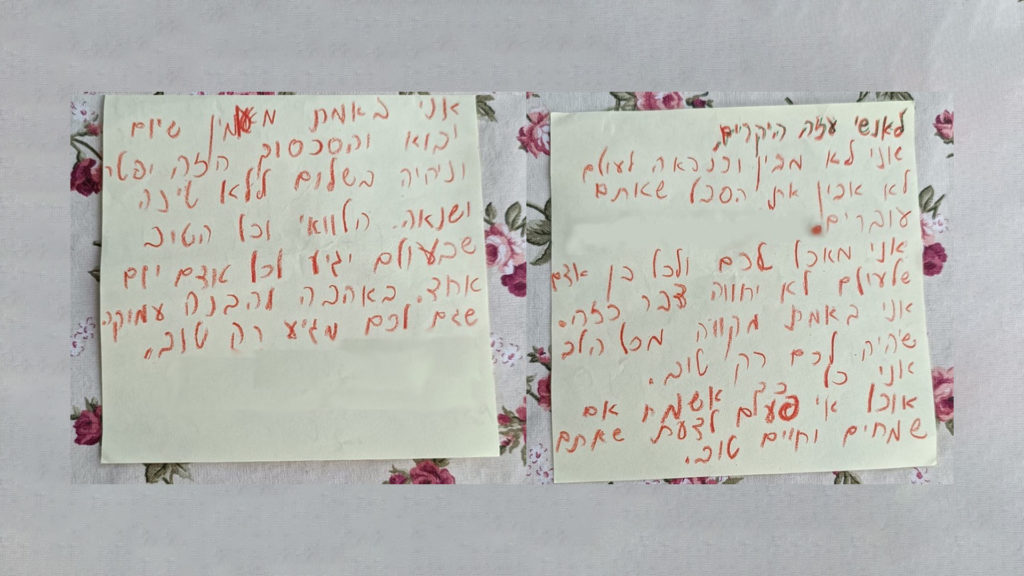Dialogue in the Dark: The War of 2023
We are living through traumatic times of unfolding war. Everyone at the SFP is shocked by, and grief stricken over the incomprehensible atrocities committed by Hamas, and the lethal and vengeful response Israel is mounting in Gaza. Moreover, the war acts as an excuse to deliberately commit further atrocities, as Palestinian citizens of Israel are being massively silenced and persecuted more than ever, and army-backed violence by Jewish settlers is rising in the west bank. The vicious cycle of violence, terror and retribution tears at the soul.
Under such stress and uncertainty, a natural response might be to keep silent and wait for events to unfold. But talking is thinking, and in such catastrophic times it is important to think together. We see it as our responsibility to facilitate honest, intricate and difficult reflection and dialogue at this historical moment of cataclysmic disaster. Only through engagement can we acknowledge one another’s pain, and stay in touch within and across national lines. In an atmosphere of extreme incitement, dehumanization and seeing the “other” as the enemy, we educate to see the other as human beings. Although we might be just a drop in a turbulent sea, we continue to strive for an egalitarian, just and democratic society, using the tools we have developed throughout the years, relying on the hard-won trust cultivated between the SFP and its Jewish and Palestinian graduates.
Since the start of the war, we have already taken several actions in this direction: we have held several online dialogue sessions for our active bi-national groups (more details here); we responded to a request by both the residents of our home village of Wahat al-Salam-Neve Shalom and the staff of the local bi-lingual elementary school to conduct dialogue sessions due to the war and the complexities it brings to the daily life in a nationally-mixed spaces (more details here); We started our new dialogue program between Palestinian and Israeli-Jews who live in Europe (more details here); We have conducted several consultation sessions with different higher education and health institutions with nationally-mixed populations; We talked with the international media to bring our unique peaceful agenda (watch Nava in an interview on CBC News); We collaborated with other local human rights organizations calling against harming civilians on both sides.
The School for Peace is committed to peacebuilding in the region through educational activities, even in the darkest of times. There is no way to predict the consequences of these events on our societies, as they are still ongoing, but we have our finger on the pulse, and are working to evaluate the effects on Jewish-Palestinian relations to strategize our actions, and to best support our graduates in light of their changing needs.
–
In the photo: A participant in one of our ongoing programs shared that his 13 years old kid is asking a lot of questions about the situation, and among them he expressed his concerns about the children in Gaza. His father suggested he write a letter to the children of Gaza, and so he did. The letter reads: “Dear people of Gaza, I cannot, and probably will never, understand the suffering that you go through. I wish you, and anyone in the world, had never experienced this. I really wish you from the bottom of my heart only the best. I would be very happy to know one day, if possible, that you are happy and living a good life. I really believe that one day this conflict will end and we shall live in peace without resentment and hatred. I wish all the best things in the world would get to all human beings. With love and with deep understanding that you too deserve only good.

